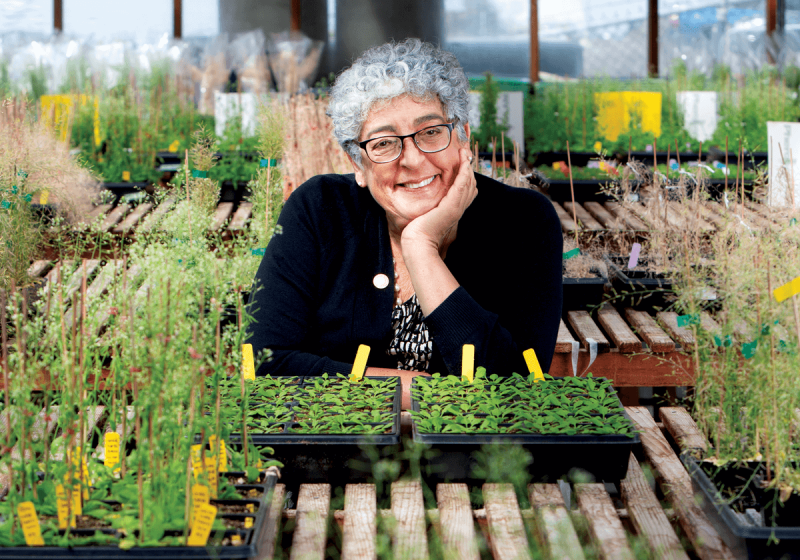People needed to find new ways to grow plants — and soon.
The scientist’s urgency came not only from what was happening around her — record heat waves, catastrophic wildfires and deadly floods linked to climate change — but from the fight within her. [Joanne] Chory had been living with Parkinson’s disease for more than a decade, and the illness was getting worse. The cells in her brain were degenerating, her muscles were in revolt.
With the world teetering toward disaster, she decided, there was only one thing she wanted to do with the days she had left.
In the Breakthrough Prize video, Chory laid out a vision for a new kind of agriculture. She wanted to create “ideal plants” — crops like wheat or rice that are bred to store huge amounts of carbon in their roots. If enough farmers replanted their fields with these engineered species, she said, they could pull as much as 20 percent of the carbon dioxide emitted by humans out of the atmosphere each year.
Chory’s uncertain health means her own future is a mystery. But she can envision her children, in their 30s, on a planet that is thriving.
“I would like for my kids to be thinking,” she said, “that I did something important for their world.”































